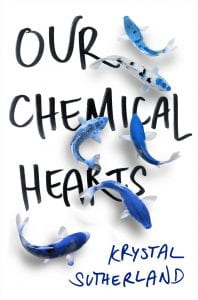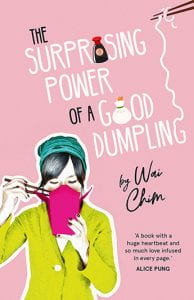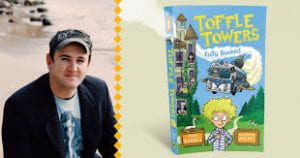With a delayed and adjusted awards ceremony this year, the CBCA Awards have finally been announced!
View the award ceremony today (October 16) below:
This year, I didn’t read all the shortlisted Older Readers books, but two of those I reviewed here were awarded the Honour Book status – The Boy Who Steals Houses and Ghost Bird. (I was disappointed When the Ground is Hard wasn’t also among the winners, as it was my pick.)
 That said, how many people regularly pick the winner?
That said, how many people regularly pick the winner?
This year the winner in the Older Readers category was ‘This is How We Change the Ending’ – a tough book for the author, dealing with tough issues. Author Vikki Wakefield even expressed how writing this book made her feel uncomfortable.
It is inhabited by kids who are tough and prickly and aimless. Kids trying to figure out who they are and what they stand for. Kids who feel they have limited choices.
Hopefully, it is a book that kids, like this, will read with hope; and also one read by others better off, to develop empathy.
When the passionate Eddie Woo introduced the Younger Readers award category, he aimed to remind everyone about the power of books – including the power to help us inhabit other people’s thoughts, to embrace other people’s emotions, and thus, develop empathy for others.
Winner Pip Harry accepted her award and then showed viewers around the area of Singapore (where she now lives). However, her book, ‘the Little Wave’, was inspired on the shores of Manly Beach, which she misses. She spoke about reading as a friend, as well as a place to learn empathy. She said she loves to write for kids “because they are the best readers”, and read the following poem which was sent to her by an avid reader:
“Writing a fiction story is like creating a world
Piece by piece
And your head forgets who you really are.” – Amelia, Grade 3
Empathy and understanding of people in different situations seem to be key elements in many of the books involved in this year’s awards. This is also reflected in the comments of readers interviewed in the video clips, as well as many of the books. Accepting the award for Eve Pownall Award this year, Bruce Pascoe for ‘Young Dark Emu’ expressed his desire for the younger generation to develop an understanding and appreciation of Australian heritage – another book where kids can stand in the shoes of others.
What inspired you the most from this year’s awards?
 It’s a mystery – Laney is missing and Stacey doesn’t believe the story told by Laney’s boyfriend, Troy.
It’s a mystery – Laney is missing and Stacey doesn’t believe the story told by Laney’s boyfriend, Troy. Henry – at 17 has never had a real girlfriend. Lola – had a fling with Henry, but then moved on to a relationship with Georgie. Murray – comical crazy over-the-top Aussie friend is thrown into the mix. (Maybe he’s a good drawcard for Australian YA readers?)
Henry – at 17 has never had a real girlfriend. Lola – had a fling with Henry, but then moved on to a relationship with Georgie. Murray – comical crazy over-the-top Aussie friend is thrown into the mix. (Maybe he’s a good drawcard for Australian YA readers?) As the COVID-19 virus eats into our grocery and other supplies, perhaps it’s time, while we cool our heels at home, to reconsider our consumption.
As the COVID-19 virus eats into our grocery and other supplies, perhaps it’s time, while we cool our heels at home, to reconsider our consumption.

 The winners for the Indie Awards (a unique award recognising and rewarding the best Australian writing as chosen by Australian Independent Booksellers) was announced today.
The winners for the Indie Awards (a unique award recognising and rewarding the best Australian writing as chosen by Australian Independent Booksellers) was announced today.
 When I first began reading ‘the Surprising Power of a Good Dumpling’ it made me recall ‘Front Desk’ by Kelly Yang (
When I first began reading ‘the Surprising Power of a Good Dumpling’ it made me recall ‘Front Desk’ by Kelly Yang ( Mia’s family has immigrated from China to the US for a better life – which is fine, until the reality of finding work hits. With little more than $200, the family takes on a job running a motel for Mr Yao, the wealthy owner. They soon realise life isn’t going to be as rosy as they first thought, as Mr Yao takes advantage of their desperate situation.
Mia’s family has immigrated from China to the US for a better life – which is fine, until the reality of finding work hits. With little more than $200, the family takes on a job running a motel for Mr Yao, the wealthy owner. They soon realise life isn’t going to be as rosy as they first thought, as Mr Yao takes advantage of their desperate situation. Late in the day of our BookWeek celebrations, there was anticipation as years 5 and 6 waited to hear from this year’s invited author. Anticipation too, for the author – for Tim Harris had taught at this school for 10 years before embarking on his writing career.
Late in the day of our BookWeek celebrations, there was anticipation as years 5 and 6 waited to hear from this year’s invited author. Anticipation too, for the author – for Tim Harris had taught at this school for 10 years before embarking on his writing career.